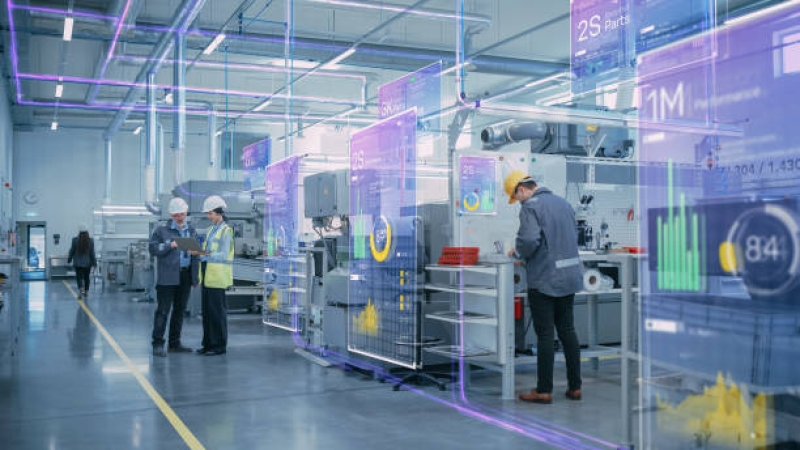In the ever-evolving landscape of the manufacturing industry, staying competitive requires embracing technological advancements. Software solutions have emerged as a driving force behind increased efficiency, streamlined operations, and improved overall productivity. In this blog post, we'll explore the transformative role of software in the manufacturing sector and how it is reshaping the way products are designed, produced, and delivered.
Design and Prototyping
One of the initial stages in manufacturing involves product design and prototyping. Software applications like Computer-Aided Design (CAD) and Computer-Aided Engineering (CAE) have become indispensable tools for designers and engineers. These tools enable the creation of intricate 3D models, helping to visualize and simulate product designs before they enter the production phase. This not only reduces the time and costs associated with physical prototypes but also allows for more accurate and refined designs.Automation and Robotics:
Automation has been a game-changer in the manufacturing sector, and software plays a crucial role in orchestrating robotic systems. Manufacturing Execution Systems (MES) and Supervisory Control and Data Acquisition (SCADA) software help manage and control automated processes, ensuring precision and consistency in production. Robotics, guided by intelligent software, can perform repetitive tasks with unparalleled speed and accuracy, leading to increased production rates and reduced errors.
Supply Chain Management:
Efficient supply chain management is vital for the success of any manufacturing operation. Advanced Enterprise Resource Planning (ERP) software helps manufacturers optimize their supply chains by providing real-time insights into inventory levels, order statuses, and production schedules. This results in better coordination among different departments, minimizes lead times, and enhances the overall responsiveness of the manufacturing process to market demands.
Quality Control and Monitoring:
Maintaining high-quality standards is paramount in manufacturing. Software solutions, such as Statistical Process Control (SPC) and Quality Management Systems (QMS), enable real-time monitoring of production processes. This ensures that any deviations from quality standards are promptly identified and addressed, preventing defects and reducing waste. As a result, manufacturers can deliver products with consistently high quality to their customers.
Predictive Maintenance:
Downtime due to equipment failure can significantly impact production efficiency. Predictive maintenance software utilizes data from sensors and monitoring systems to predict when equipment is likely to fail. By identifying potential issues before they escalate, manufacturers can schedule maintenance proactively, minimizing unplanned downtime and extending the lifespan of machinery.
Conclusion:
In conclusion, the integration of software solutions in the manufacturing industry has ushered in a new era of efficiency, precision, and competitiveness. From design and prototyping to automation, supply chain management, quality control, and predictive maintenance, software plays a pivotal role at every stage of the manufacturing process. As technology continues to advance, manufacturers who embrace and leverage these software innovations will undoubtedly position themselves for success in the rapidly evolving landscape of the manufacturing industry.

